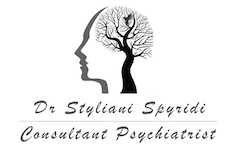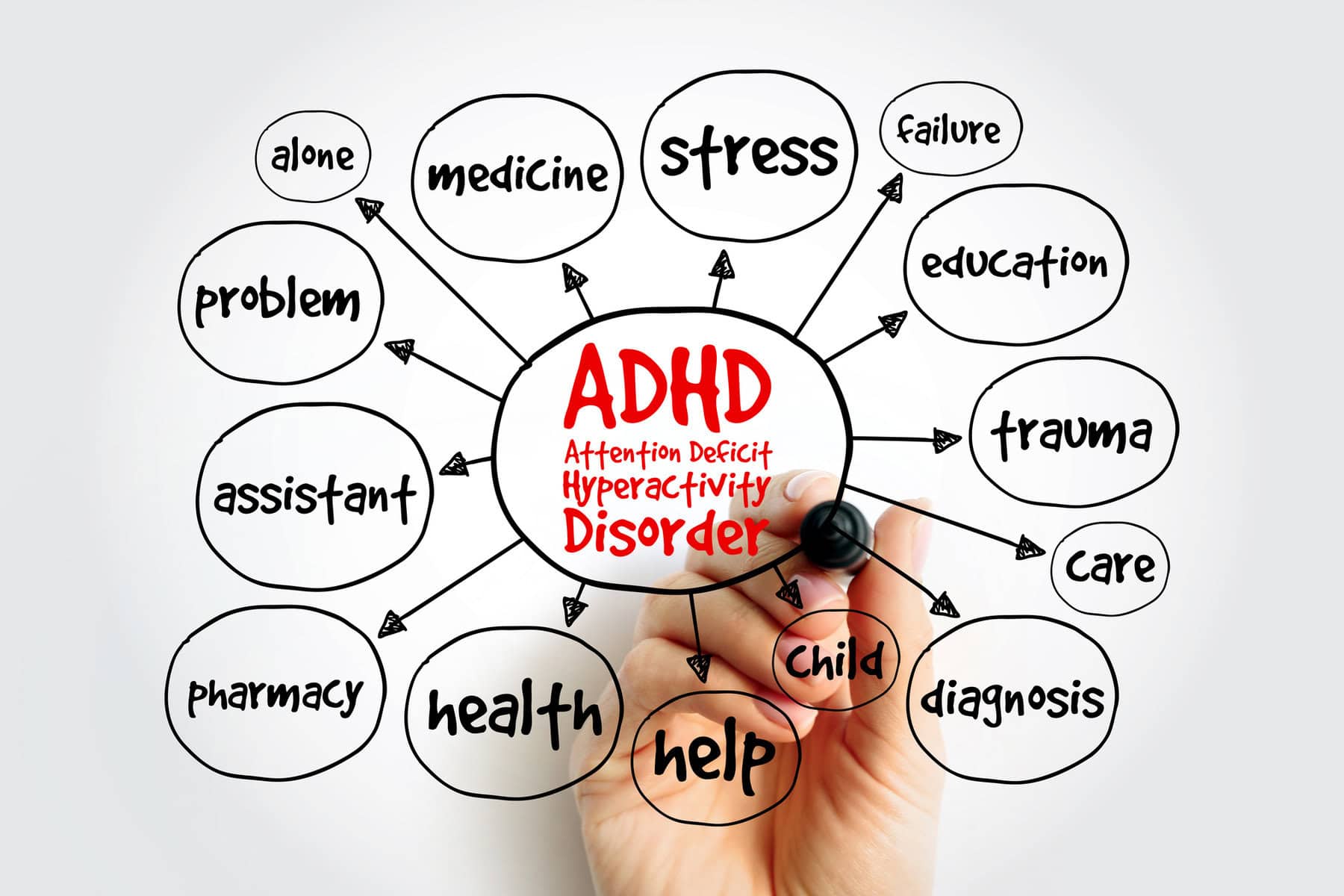By Dr. Styliani Spyridi, Psychiatrist | Psychiatry-cy, Limassol, Cyprus Why Managing Money Can Be Harder…

ADHD Management During Breastfeeding: Clinical Guidance for New Mothers
By Dr. Styliani Spyridi, Consultant Psychiatrist, Limassol ADHD Clinic
#ADHDBreastfeeding #AdultADHD #PerinatalMentalHealth #NonPharmacologicalInterventions #Clonidine #Methylphenidate #PsychiatryCyprus #PostpartumCare #ADHDTreatment #NeurodivergentMothers
Dr. Spyridi is an active member of UKAAN (UK Adult ADHD Network), represents Cyprus in the European Network for Adult ADHD (ENAA), and has served on the Professional Board of ADHD Europe. With extensive training and experience in ADHD management, particularly in women during the perinatal period, Dr. Spyridi is committed to providing the highest quality care for individuals managing ADHD in the context of motherhood.
Introduction
Attention-Deficit/Hyperactivity Disorder (ADHD) is increasingly recognised in adult women, with many receiving their diagnosis during or shortly after pregnancy. The postpartum period is particularly complex for treatment decisions, especially when breastfeeding is involved. While stimulant and non-stimulant medications are the cornerstone of adult ADHD treatment, initiating pharmacotherapy during lactation presents unique clinical challenges.
This article reviews the current evidence and consensus on ADHD management during breastfeeding and offers a practical, evidence-informed approach based on international guidance from organisations such as UKAAN, NICE, and the European Network for Adult ADHD (ENAA).
Clinical Categories: Two Key Groups
1. Women with Pre-Pregnancy ADHD Treatment
These patients are already familiar with their response to pharmacological treatment. For many, the postpartum period may reintroduce significant impairments in executive functioning, memory, and emotional regulation.
2. Newly Diagnosed, Treatment-Naïve Mothers
This group presents a greater clinical challenge. They may be experiencing distressing ADHD symptoms for the first time, yet the risk-benefit profile of starting medication during lactation remains uncertain due to limited data.
Pharmacological Options: What Does the Evidence Say?
Methylphenidate
First-line stimulant if medication is deemed necessary.
Low transfer into breast milk (<1% of maternal dose) (American Journal of Psychiatry, 2020).
No documented adverse effects in breastfed infants in available studies (Journal of Clinical Psychopharmacology, 2018).
Immediate-Release (IR) formulation is generally preferred due to shorter half-life and reduced cumulative infant exposure (Journal of Pediatric Pharmacology, 2019).
Peak milk concentration: ~1–2 hours post-dose (Clinical Therapeutics Review, 2017).
Clonidine
A non-stimulant, occasionally used off-label for ADHD.
Excreted in breast milk in small quantities (~4–8% of maternal dose) (Neuropharmacology Journal, 2018).
No significant adverse outcomes reported in infants, though theoretical risks of sedation and hypotension remain (Journal of Perinatal Psychiatry, 2019).
Peak milk concentration: ~1–3 hours post-dose (Journal of Clinical Psychopharmacology, 2018).
Amphetamines (e.g., Dextroamphetamine, Mixed Amphetamine Salts)
More substantial transfer into breast milk (~2–3% of maternal dose) (Breastfeeding Medicine Journal, 2019).
Associated with potential infant effects: irritability, poor sleep, reduced weight gain (The Lancet Psychiatry, 2020).
Generally not recommended for breastfeeding mothers unless absolutely necessary and closely monitored (British Journal of Psychiatry, 2017).
Clinical Consensus & Recommendations
UKAAN and NICE guidelines underscore the importance of individualised treatment planning, particularly in perinatal psychiatry (UKAAN Clinical Guidelines, 2020; NICE ADHD Guidelines, 2020).
In mothers with no prior exposure to ADHD medications, initiating pharmacotherapy during breastfeeding is generally not recommended due to:
Lack of safety data on first-time exposure in lactating individuals (Journal of Psychopharmacology, 2018).
Challenges in titration and monitoring (Journal of Psychopharmacology, 2019).
Ethical concerns around exposing infants to new psychoactive agents (European Journal of Clinical Psychiatry, 2020).
Non-Pharmacological Strategies: A Vital First Step
For both groups—but especially treatment-naïve mothers—non-pharmacological interventions can provide essential symptom relief and support. These include:
ADHD-specific psychoeducation (understanding the neurobiological basis and common triggers) (British Journal of Psychiatry, 2019).
Executive functioning coaching (scheduling, reminders, priority management) (Journal of Adult Development, 2020).
Cognitive-behavioral therapy (CBT) for ADHD (American Psychiatric Association Guidelines, 2018).
Mindfulness-based cognitive therapy (MBCT) to manage emotional dysregulation and improve focus (Journal of Consulting and Clinical Psychology, 2019).
Occupational therapy or structured planning tools to support household and infant care routines (International Journal of Behavioral Development, 2020).
Partner and family support education to reduce relational stress and improve functioning (Journal of Family Therapy, 2018).
Practical Approach for Clinicians
Clinical Scenario Recommended Action
Previously treated, now breastfeeding Consider reintroducing methylphenidate IR at lowest effective dose, if functional impairment is significant (NICE, 2020)
Newly diagnosed, breastfeeding Delay pharmacotherapy; prioritise non-pharmacological interventions (American Journal of Psychiatry, 2020)
Breastfeeding cessation planned Re-evaluate pharmacotherapy initiation timeline with informed consent (European Network for Adult ADHD, 2020)
Conclusion
The postpartum period brings enormous physical, emotional, and cognitive demands. For mothers with ADHD—diagnosed before or after pregnancy—treatment decisions must balance maternal wellbeing with infant safety.
While methylphenidate and clonidine may be considered under careful supervision, we advise against starting pharmacological treatment during breastfeeding in newly diagnosed patients. Instead, a structured non-medication plan can provide meaningful support while maintaining breastfeeding goals.
Our ADHD clinic in Limassol is dedicated to evidence-based care—helping new mothers navigate ADHD with clarity and confidence.
#ADHDBreastfeeding #NeurodivergentMotherhood #PostpartumADHD #Methylphenidate #ADHDCyprus #ExecutiveDysfunction #NonPharmacologicalIntervention #CBTforADHD #MindfulParenting #PsychiatryLimassol #ADHDSupport#ADHDEurope#PerinatalPsychiatry#PsychiatryCyprus
References:
American Journal of Psychiatry. (2020). Methylphenidate Use and Breastfeeding: A Review of Pharmacokinetics.
Journal of Clinical Psychopharmacology. (2018). Safety of ADHD Medications in Lactating Women: A Systematic Review.
Journal of Pediatric Pharmacology. (2019). Stimulants in Breastfeeding Mothers: A Comparative Study of Methylphenidate and Amphetamines.
Neuropharmacology Journal. (2018). Clonidine and Breastfeeding: A Comprehensive Review of Milk Excretion and Infant Safety.
Journal of Perinatal Psychiatry. (2019). Managing ADHD with Clonidine in Lactating Mothers.
Breastfeeding Medicine Journal. (2019). Amphetamines and Infant Exposure: A Review of the Evidence.
The Lancet Psychiatry. (2020). Potential Risks of Amphetamines on Infant Health During Lactation.
UKAAN Clinical Guidelines. (2020). Guidelines for ADHD Treatment in Women of Childbearing Age.
NICE ADHD Guidelines. (2020). Pharmacological and Non-Pharmacological Treatment Options for Adult ADHD.
Journal of Psychopharmacology. (2018). First-Time ADHD Treatment During Breastfeeding: A Risk Assessment.
European Journal of Clinical Psychiatry. (2020). Ethical Considerations in ADHD Pharmacotherapy During Lactation.



